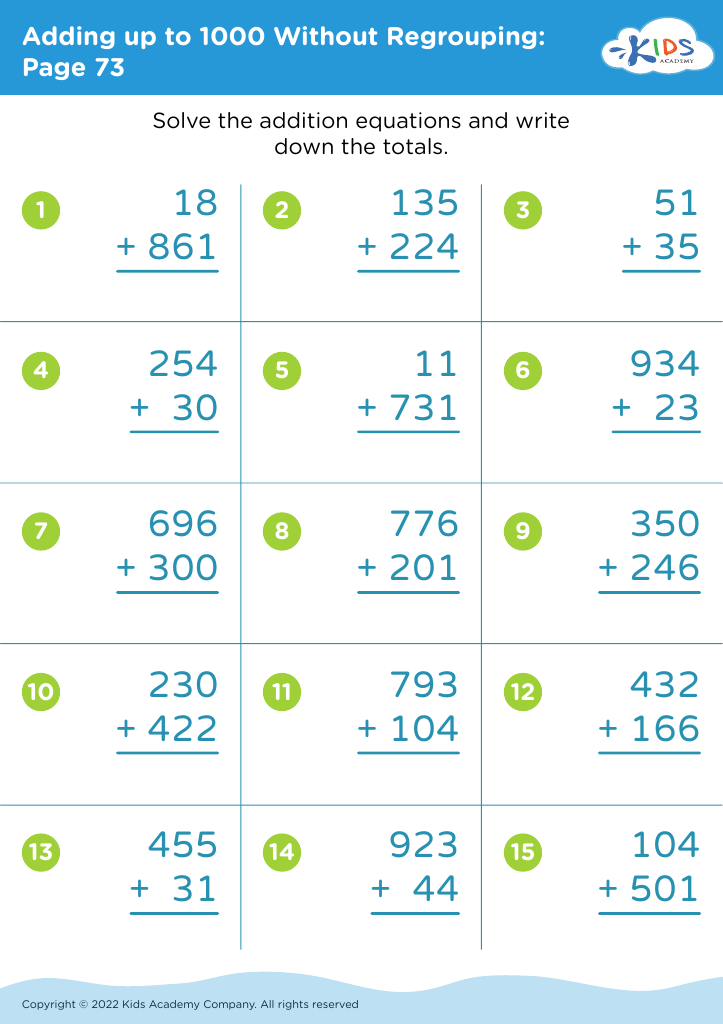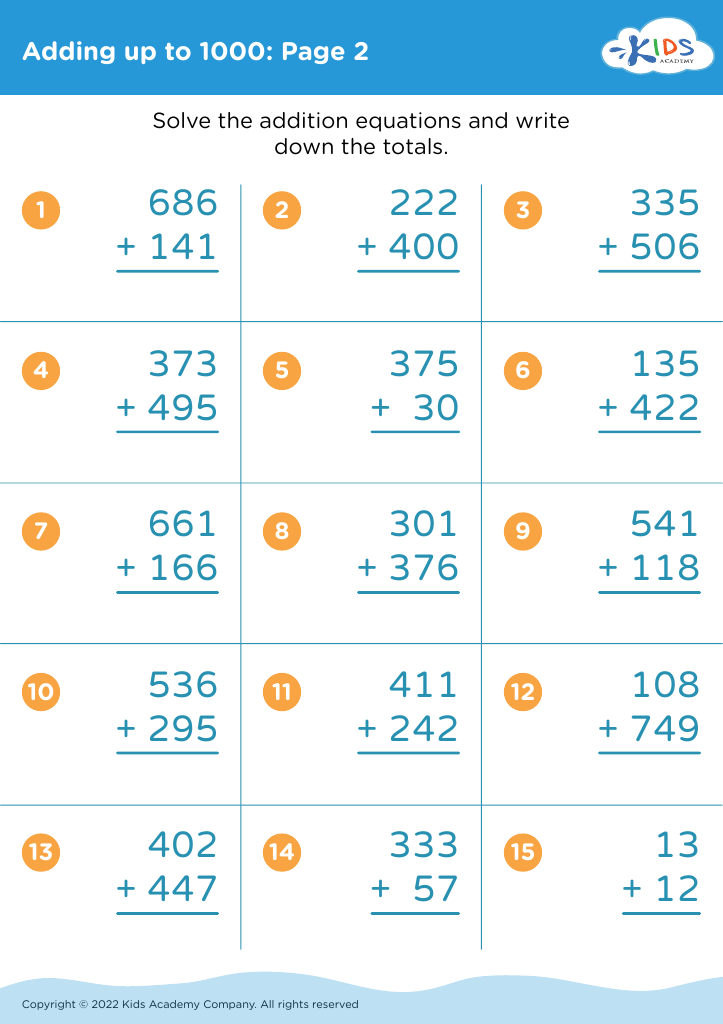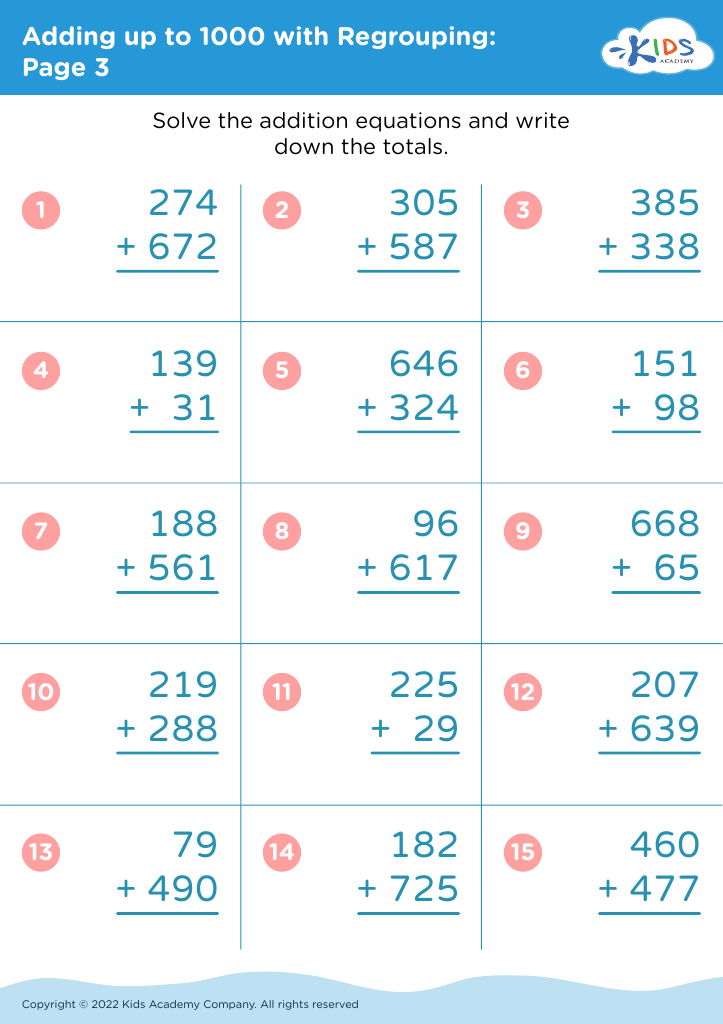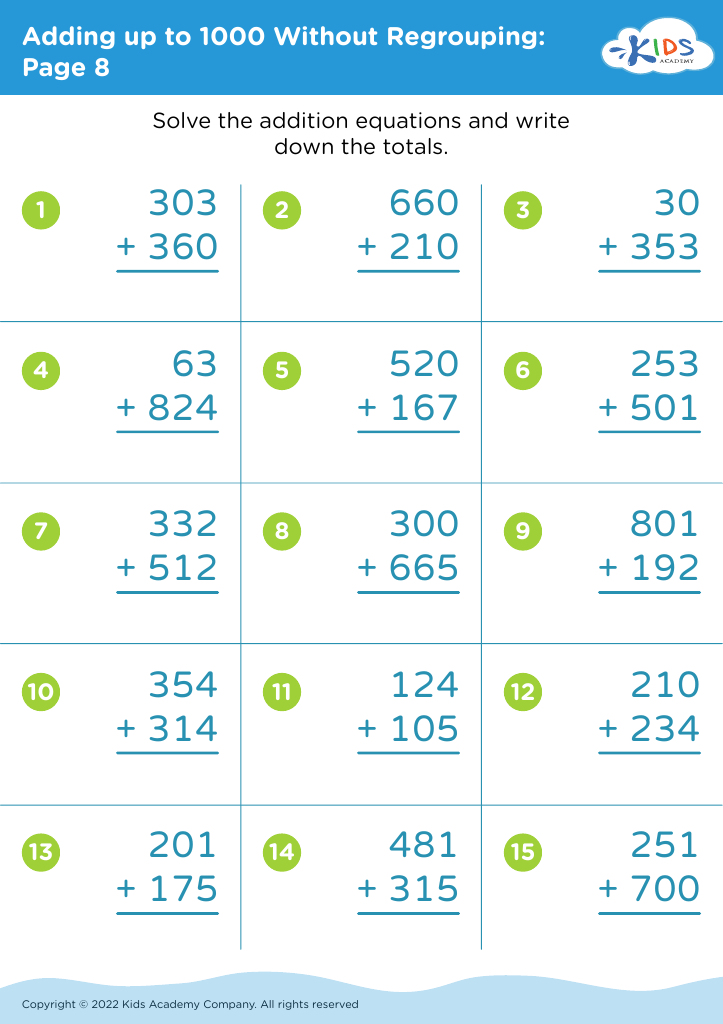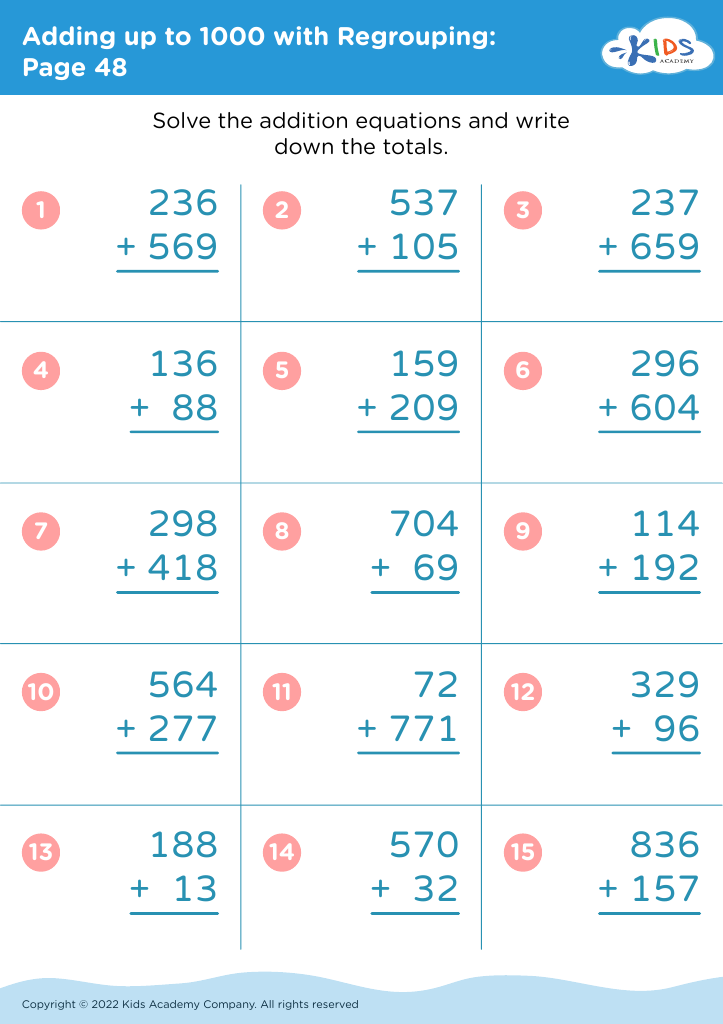Enhance comprehension Adding up to 1000 Worksheets for Ages 6-9
7 filtered results
-
From - To
Enhance comprehension with our "Adding Up to 1000" worksheets, designed specifically for children aged 6-9. These engaging activities aim to support young learners in mastering addition and improving mathematical understanding. Each worksheet is thoughtfully crafted to promote critical thinking and problem-solving skills while keeping kids motivated through fun challenges. By incorporating colorful visuals and varied problem sets, children will develop a strong foundation in math that easily aligns with their school curriculum. Perfect for at-home practice or classroom use, these worksheets are ideal for bolstering students' confidence and encouraging a love for learning. Explore our collection and empower your child's math journey today!
Enhancing comprehension in children ages 6-9 is crucial for their cognitive and academic development. At this age, students are transitioning from learning to read to reading to learn, making strong comprehension skills essential. Parents and teachers should prioritize comprehension because it lays the foundation for all future learning across subjects.
First, strong comprehension skills enable children to grasp complex ideas, fostering critical thinking and creativity. Children with good comprehension can connect different concepts and articulate their understanding, which boosts their confidence and engagement in classroom discussions. Furthermore, comprehension skills are critical for standardized testing and assessments, often serving as benchmarks for academic achievement.
In addition, enhanced comprehension aids in social-emotional development—children learn to empathize and understand perspectives through narrative experiences in reading. This facet of comprehension helps build social skills and a greater understanding of the world around them.
Encouraging rich dialogues about texts and utilizing various reading strategies can create a love for reading and lifelong learning. Therefore, investing effort into enhancing comprehension not only contributes to academic success but also enriches personal growth and equips children with essential tools for their future. Teachers and parents play a pivotal role in nurturing these essential skills.
